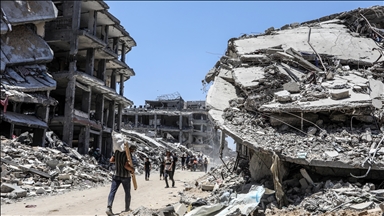The Gaza war economic impact on Israel, with costs surpassing $67.3 billion according to Israeli economists. This staggering figure underscores the financial strain the conflict has placed on the nation, impacting various sectors and leading to a significant budget deficit. As the war continues, Israel faces mounting challenges in managing its economy while dealing with the humanitarian crisis in Gaza and international condemnation for its actions.
Gaza war economic impact on Israel
The economic impact of the Gaza war extends far beyond direct military expenditures. Rakefet Russak-Aminoach, former CEO of Israel’s Bank Leumi, revealed that the war has cost the Israeli economy more than NIS 250 billion ($67.3 billion). This figure does not include additional expenses related to evacuees, wounded citizens, and other economic needs arising from the conflict. The defense establishment is seeking an annual increase of at least NIS 20 billion ($5.39 billion) to support ongoing military operations, further straining the nation’s finances.
The situation has led to a substantial budget deficit, which Jacob Frenkel, a former governor of Israel’s central bank, identified as the most pressing economic issue. Israel began 2023 without a deficit, but by July, it had ballooned to 8.1%, equivalent to approximately NIS 155 billion ($41.8 billion). This rapid deterioration of the country’s financial position highlights the urgent need for economic intervention and strategic planning to mitigate the long-term effects of the war.
Challenges in Economic Rehabilitation and International Relations
Uri Levin, a former CEO of Israel Discount Bank, emphasized that Israel’s economic recovery is intrinsically linked to regaining the trust of international investors. This task is complicated by Israel’s continued military offensive in Gaza, which has drawn widespread international condemnation. The country’s actions, including its refusal to comply with a UN Security Council resolution demanding an immediate cease-fire, have strained diplomatic relations and potentially deterred foreign investment.
The ongoing conflict has resulted in a devastating humanitarian crisis in Gaza. Over 40,000 people, primarily women and children, have been killed, with more than 92,400 others injured. The destruction extends beyond human casualties, with vast areas of Gaza reduced to ruins and a crippling blockade limiting access to essential resources such as food, clean water, and medicine.
Israel’s actions in Gaza have led to accusations of genocide at the International Court of Justice (ICJ). The court has ordered Israel to halt its military operations in Rafah, a southern city where over a million Palestinians sought refuge before it was invaded on May 6. These legal challenges and international pressure further complicate Israel’s economic outlook and its ability to attract investment.
Long-term Economic Implications and Path to Recovery
As the conflict enters its tenth month, the long-term economic implications for Israel become increasingly concerning. The substantial budget deficit, coupled with ongoing military expenditures and the need for post-war reconstruction, presents a significant challenge to the country’s financial stability. Addressing these issues will require a multifaceted approach, including careful fiscal management, diplomatic efforts to rebuild international relations, and strategies to attract foreign investment.
The path to economic recovery will likely be closely tied to the resolution of the conflict and Israel’s ability to address the humanitarian crisis in Gaza. Rebuilding trust with the international community and investors will be crucial in this process, requiring transparency, adherence to international law, and a commitment to regional stability.
Gaza war economic impact on Israel has been profound, with costs reaching $67.3 billion and creating a significant budget deficit. As the conflict continues, Israel faces the dual challenge of managing its economic strain while addressing the humanitarian crisis in Gaza and international criticism of its actions. The road to economic recovery will require careful navigation of both domestic and international challenges, with the ultimate goal of restoring financial stability and rebuilding trust on the global stage.
For Upodates
Related News
















